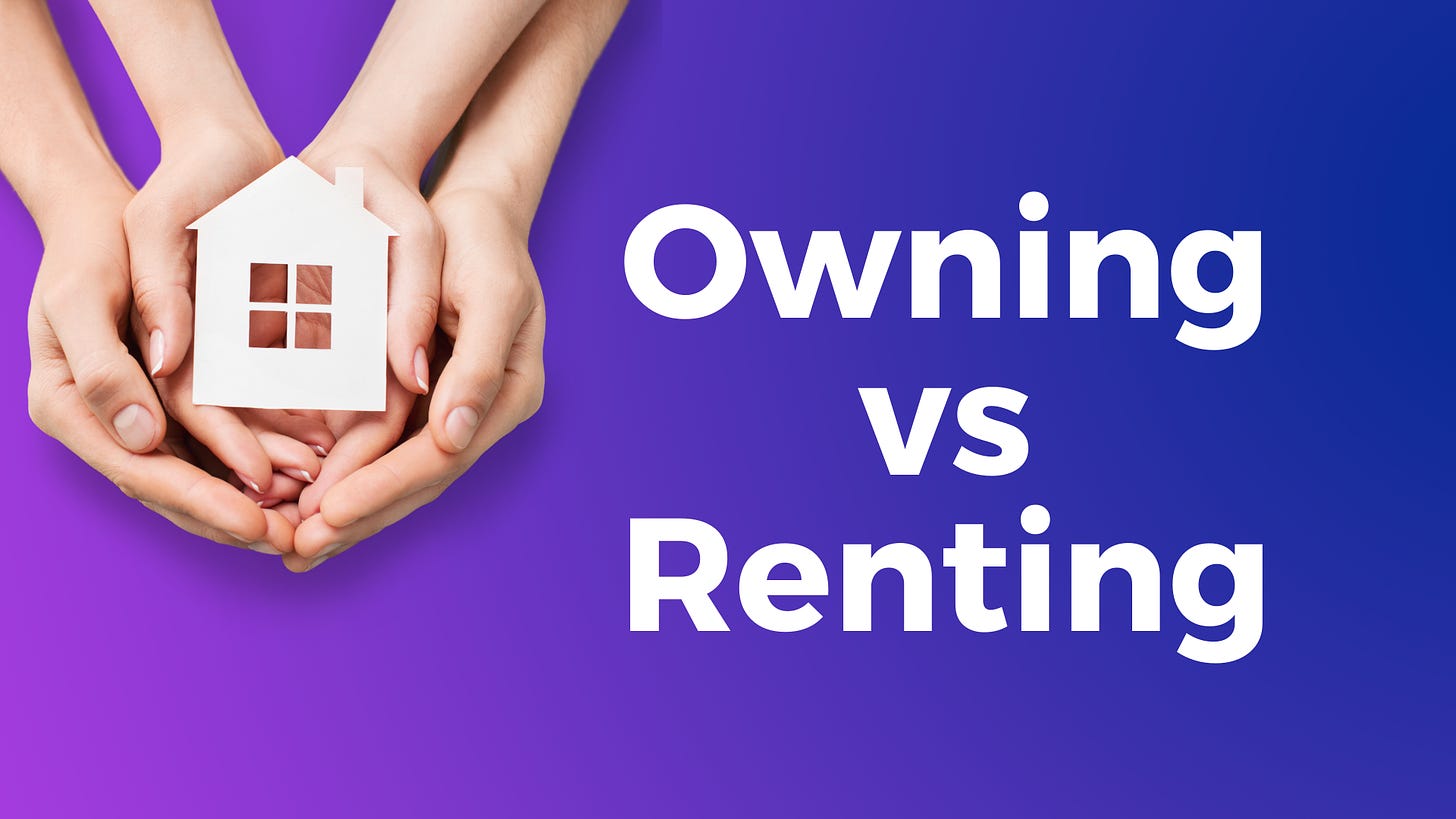Owning a House Versus Renting
To Buy or to Rent? This is the most crucial decision one has to make while investing in any property. It is important to keep in mind both advantages and disadvantages of each situation.
Owning a house may be a lifelong goal for many, but renting makes more sense for some of their financial circumstances.
Let us discuss the relative cost comparison of buying versus renting a house.
The cost associated with buying:
1. Down payment: The amount of the down payment being made for the house could have been invested elsewhere.
2. Interest on loan: The majority of people usually take a loan while buying a house. The borrower of the loan will have to pay interest every month. The term period of a house loan varies from 10 to 30 years.
3. Repair and Maintenance cost: This is a recurring cost and is inevitable most of the time in the case of an owned house.
The cost associated with renting:
1. Rent: This is a monthly agreed amount the tenant pays to the owner of the house.
Usually, repair and maintenance in the case of a rented house are borne by the owner.
As you can see, the cost associated with renting is much lower as compared to one with buying.
There are a few factors that can possibly affect the decision and make buying a better option than renting:
Lower rate of Interest
You can pay a considerable amount as a down payment
Planning is for long term investment or for own stay
Further, if one is planning to invest in a house property, then a very important term needs to be understood first, which is Rental Yield.
Rental Yield
It is the return on property achieved through rent if one owns the house. In India, this rental yield is around 2-3%.
Let us take a simple example: If you have a house of Rs. 1 Crore, you will earn Rs. 2 Lakhs to 3 Lakhs per annum if you rent out the property. The tenant is enjoying all amenities of a house worth Rs. 1 crore just by paying rent for the entire year.
Let us understand through one more example:
If you buy a house worth Rs 50 Lakhs, there is a down payment of Rs. 10 Lakhs and a housing loan of Rs 40 Lakhs which has a maturity of 20 years. It has an EMI of Rs. 35,000/- per month. For the initial period of this loan, the interest amount in the EMI would be higher, let us say around Rs. 30,000/- per month. Assuming you are living in the same property for rent with a rental yield of 2% then you’ll be paying Rs. 8,500 (rounded up) every month.
The savings of Rs. 21,500/-(30000-8500) which you are paying as interest can be invested elsewhere, which might yield a higher rate of return as compared to rental income.
So, making an investment in a house property or renting it, is a personal choice but the cost associated with both and the opportunity cost of the interest payment to the lender in case of a home loan should be considered before making this huge investment.



